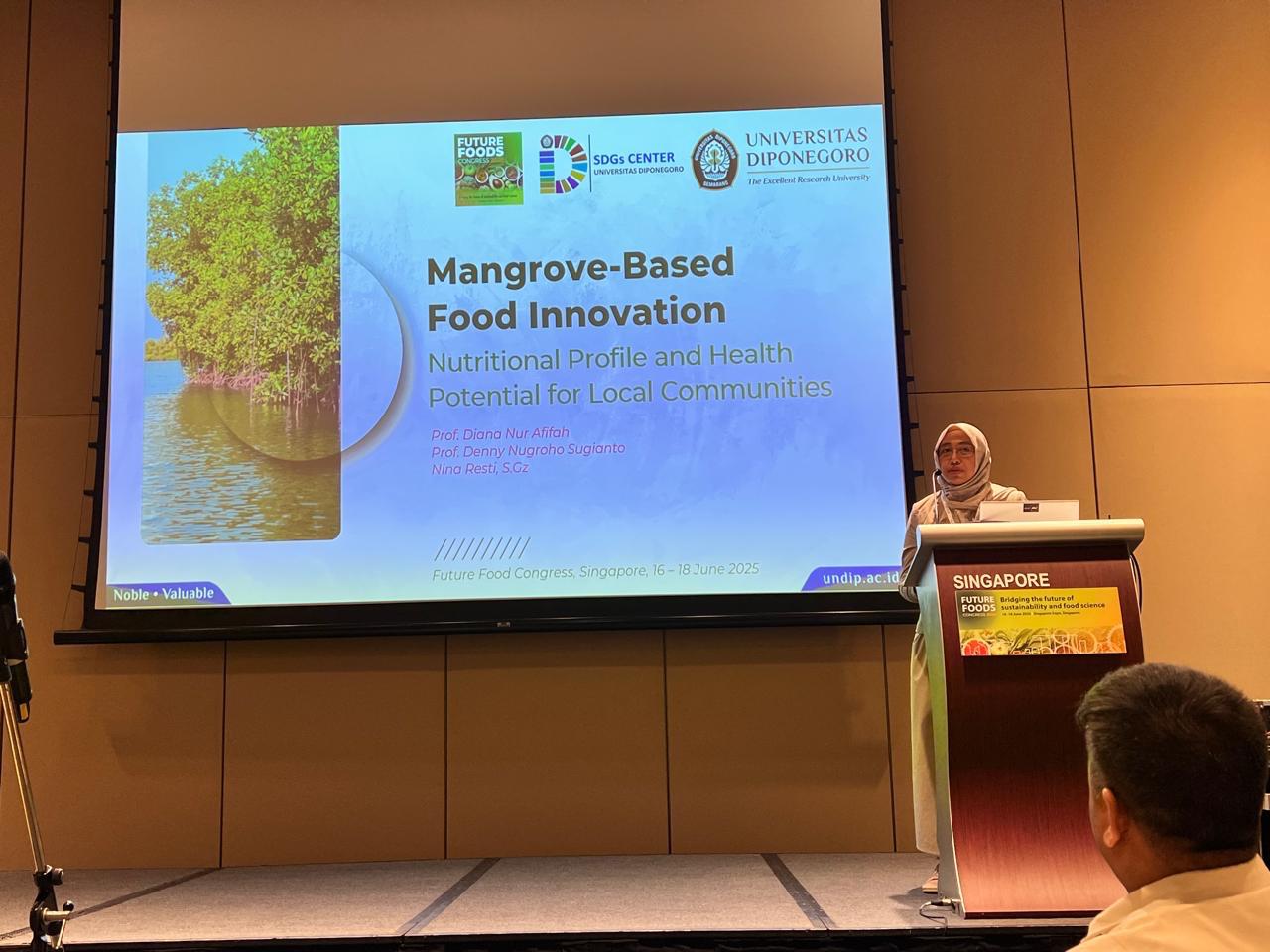Singapore, June 18, 2025 — Prof. Dr. Diana Nur Afifah, STP, M.Si., a faculty member from the Department of Nutrition Science, Faculty of Medicine, Diponegoro University (UNDIP), presented her scientific study on the potential of mangrove-based food at the Future Foods Congress 2025, held from June 16–18, 2025, at the Singapore Expo.
This prestigious international conference, organized by Elsevier, brought together leading experts in food science, food technology, and sustainability from around the globe. With the theme “Bridging the Future of Sustainability and Food Science”, the congress served as a platform for exchanging cutting-edge ideas and research addressing the future of sustainable food systems worldwide.
In her presentation titled “Mangrove-Based Food Innovation: Nutritional Profile and Health Potential for Local Communities”, Prof. Diana highlighted the nutritional value, health benefits, and innovation potential of mangrove-based foods—a topic that remains underexplored in scientific literature. Despite their high nutritional potential, she noted that research on mangrove fruits as functional foods is still very limited.
The study was conducted in collaboration with Nina Resti, S.Gz., M.Gz., an alumna of UNDIP’s Master of Nutrition Science program who is currently pursuing a Doctoral degree in Medical and Health Sciences at UNDIP, and Prof. Dr. Denny Nugroho Sugianto, S.T., M.Si., a lecturer at the Department of Oceanography, Faculty of Fisheries and Marine Science, UNDIP, and also the Head of UNDIP’s SDGs Center.
“This study not only provides insights into the nutritional and health benefits of local food resources, but also encourages the development of food innovations that can strengthen coastal food security and improve child nutrition,” Prof. Diana explained during her presentation.
The research is expected to serve as a scientific foundation for strategic public health planning and sustainable food policy development, especially in optimizing the use of abundant but underutilized local natural resources.
UNDIP’s participation in this global forum reflects its strong commitment to contributing to international scientific discourse and further solidifies its position as a leading research university actively engaged in strategic global issues such as food, nutrition, and sustainability.

